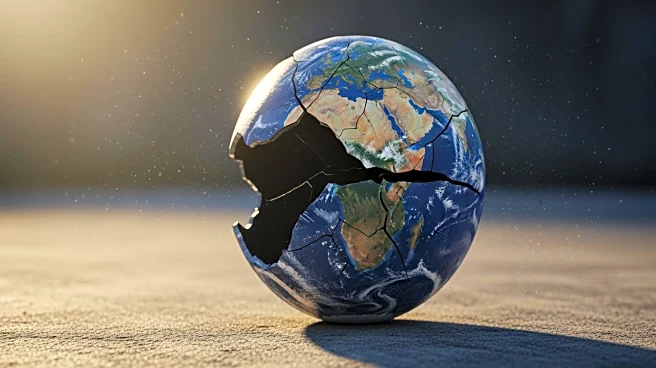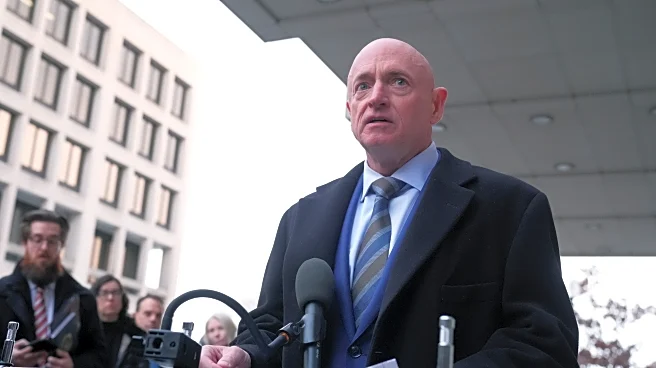What's Happening?
A recent BBC report highlights the extensive devastation in Gaza following two years of conflict. The report was based on a controlled visit organized by Israeli forces, which allowed a group of journalists,
including the BBC, to enter the area. The visit was highly regulated, with no access to Palestinian areas or residents, and all materials were subject to military censorship. The landscape observed was described as a monochrome expanse of rubble, with significant destruction evident from Beit Hanoun to Gaza City. Israeli military spokesman Nadav Shoshani stated that the destruction was not the goal, emphasizing the focus on combating terrorists. The area is marked by a network of tunnels and booby-trapped houses, which Israeli forces claim are used by Hamas. The visit also highlighted ongoing tensions, with Israeli forces continuing to engage with Hamas fighters despite a ceasefire.
Why It's Important?
The situation in Gaza has significant implications for regional stability and international relations. The extensive destruction and ongoing military engagements underscore the challenges in achieving lasting peace. The controlled nature of the visit and the military censorship highlight the complexities of reporting in conflict zones and the difficulties in obtaining an unbiased view of the situation. The humanitarian impact is severe, with tens of thousands of Gazans affected by the conflict. The international community, including the United States, plays a crucial role in mediating peace efforts and supporting reconstruction. The ongoing conflict affects not only the immediate region but also international diplomatic relations, as countries navigate their positions on the Israeli-Palestinian conflict.
What's Next?
The next steps involve the implementation of a U.S.-led peace plan, which requires Hamas to disarm and transfer power to a Palestinian committee overseen by international figures, including President Trump. However, Israeli military officials indicate that Hamas is currently reinforcing its control and armament in Gaza. The situation remains volatile, with Israeli forces committed to ensuring that Hamas no longer poses a threat to Israeli civilians. The international community will likely continue to monitor the situation closely, with potential diplomatic efforts to pressure Hamas into compliance with the peace plan. The humanitarian needs in Gaza will also require ongoing international support and intervention.
Beyond the Headlines
The conflict in Gaza raises broader ethical and legal questions about military engagement and the protection of civilians in conflict zones. The use of military censorship and controlled media access highlights the challenges in ensuring transparency and accountability in war reporting. The humanitarian crisis in Gaza also prompts discussions on the responsibilities of the international community in providing aid and supporting reconstruction efforts. The long-term implications of the conflict may include shifts in regional power dynamics and the potential for further international involvement in peacekeeping and reconstruction initiatives.











